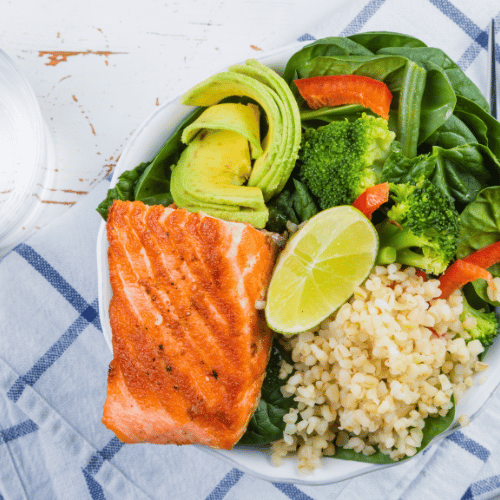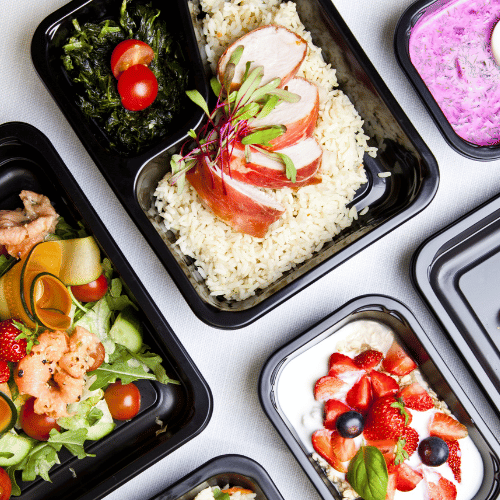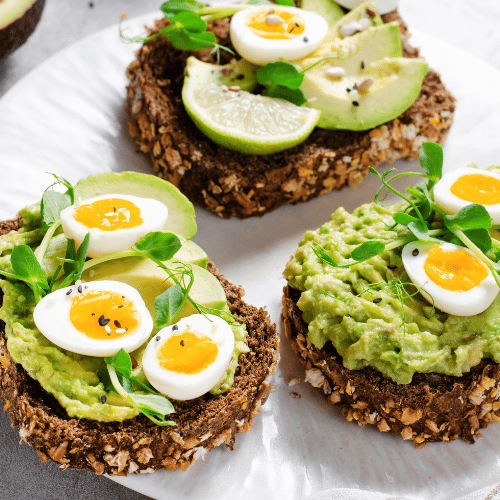- admin
- June 12, 2024
- No Comments
Nutrition
Would you like to change the way you eat and become healthier? Nutrition is a very important part of staying healthy and avoid getting chronic diseases. There are detailed guides on balanced diets, useful nutritional tips, and healthy eating habits in this article.
Understanding Balanced Diets
A balanced diet has a range of foods that are eaten in the right amounts to give your body the nutrients it needs. Carbs, proteins, fats, vitamins, minerals, and water are some of these nutrients. Variety and moderation are the keys to a healthy diet.
1. What Makes Up a Healthy Diet:
- Carbohydrates: Provide energy. Include whole grains, fruits, vegetables, and legumes.
- Proteins: Essential for growth and repair. Include lean meats, dairy, beans, and nuts.
- Fats: Necessary for energy and cell function. Include healthy fats like avocados, nuts, seeds, and olive oil.
- Vitamins and Minerals: Support overall health. Obtain from fruits, vegetables, lean meats, and dairy.
- Water: Vital for all bodily functions. Aim for at least 8 glasses of water daily.
2. Food Groups and Serving Sizes
- Fruits and Vegetables: Fill half your plate with fruits and vegetables for a range of vitamins and fiber.
- Grains: Choose whole grains over refined grains. Aim for at least half your grain intake to be whole grains.
- Protein: Vary your protein sources, including fish, poultry, beans, and nuts.
- Dairy: Opt for low-fat or fat-free options to maintain calcium intake without excess saturated fat.


Nutritional Tips for a Healthier Diet
1. Eat a Variety of Foods
To make sure you get plenty of nutrients, eat a lot of different foods. Variety is important because different foods give you different nutrients that your body needs.
2. Control Portion Sizes
Controlling and understanding portion sizes can help you stay at a healthy weight and stop you from eating too much. Smaller bowls and plates can help you control how much food you eat.
3. Cut down on sugar and salt
Limit the amount of added sugars and salt you eat. Avoid using salt to flavor food and instead use herbs and spices to make it taste better.
4. Stay Hydrated
It is very important for your health to drink enough water. Water helps the body digest food, absorb nutrients, and get rid of waste. Bring a water bottle with you to help you remember to drink often.
5. Plan Your Meals
Making plans for your meals ahead of time can help you eat better and resist the urge to eat fast food. Make a menu for the week and buy the food that goes with it.
6. Read Food Labels
Knowing how to read food labels can help you make smart decisions. In processed foods, look for sugars, fats that are bad for you, and a lot of sodium.


Healthy Eating Habits
1. Eat Regular Meals
If you skip meals, you might eat too much later in the day. Try to eat at regular times to keep your metabolism and energy levels steady.
2. Include Protein with Every Meal
Getting protein at every meal can make you feel full and satisfied, which makes you less likely to snack on unhealthy foods. Eggs, nuts, yogurt, and lean meats are all good sources of protein.
3. Cook at Home
When you cook at home, you can choose the ingredients and the amount you eat. Try out new recipes to make eating healthy fun and easy to do for a long time.
4. Practice Mindful Eating
Pay close attention to what and how much you eat. Don’t watch TV or use your phone while you’re eating. Take your time and enjoy every bite.
5. Incorporate Healthy Snacks
Snack on healthy foods that will fill you up, like yogurt, fruit, nuts, or vegetable sticks with hummus. Skip processed snacks that are high in sugar and fats that are bad for you.
6. Balance Treats with Healthy Choices
Treats are fine once in a while, but make sure you balance them out with healthier foods. To keep a healthy diet without feeling deprived, moderation is key.
The Role of Nutritional Supplements
A healthy, well-balanced diet should give you most of the nutrients you need, but supplements can help make up the difference. Before starting any supplements, talk to your doctor to make sure they are safe and necessary.


Benefits of a Healthy Diet
Eating a healthy, well-balanced diet can have many benefits, such as:
- Improved Energy Levels: Eating right gives you the energy you need to do everyday things.
- Better Weight Management: Eating in a balanced way can help you keep a healthy weight.
- Reduced Risk of Chronic Diseases: Eating well lowers the chance of getting heart disease, diabetes, and cancer.
- Enhanced Mental Health: Eating well helps the brain work well and keeps you emotionally healthy.
- Stronger Immune System: Eating foods that are high in nutrients helps your immune system work better, which helps you stay healthy.
Conclusion
A balanced diet and healthy eating habits are important for keeping your health in general. You can make a big difference in your health and quality of life by learning about the parts of a balanced diet, using nutrition tips, and making healthy eating habits. Start today by making small changes that you can keep up, and you’ll enjoy the long-term benefits of a healthy diet.







